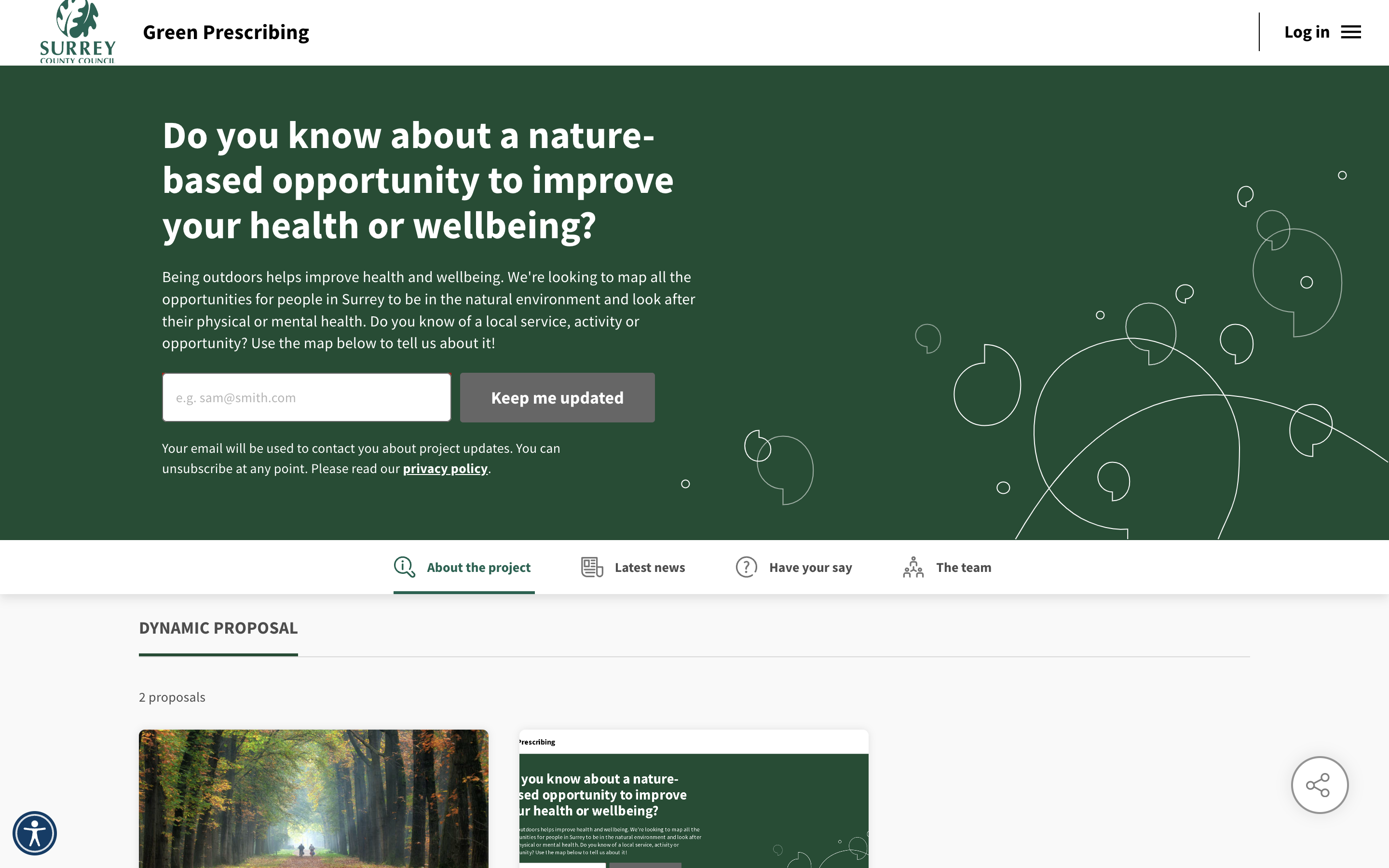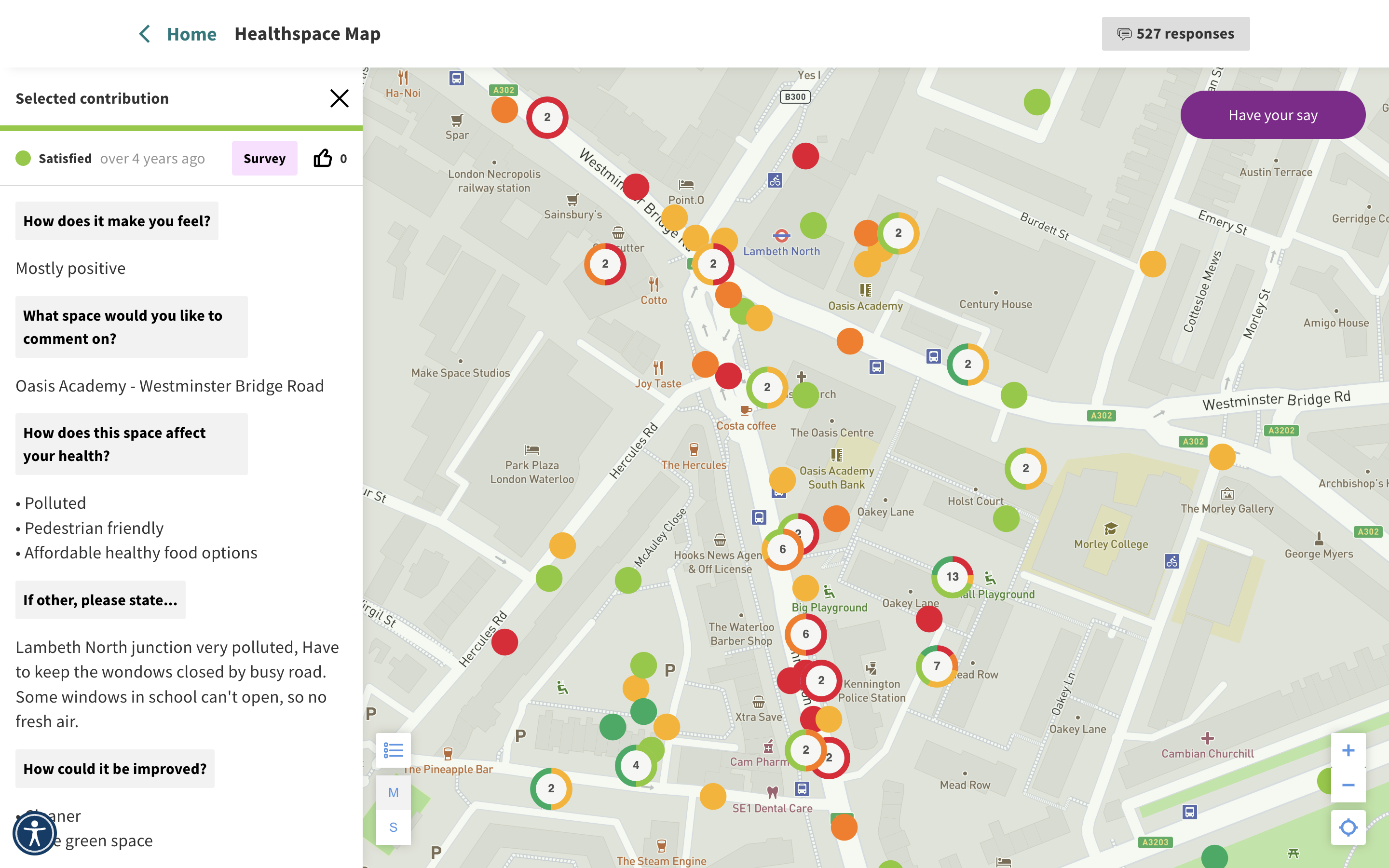Working with your community to deliver person-centred care

By Charlotte Cooper | 24/03/23 15:58
4 min read
How can we harness the huge potential of digital engagement and data to help shape the future of the NHS? That’s exactly what we’re here to discuss. With £2 billion allocated from the Spring 2023 spending review to help digitise the NHS and social care sector *, there are a number of tools and strategies that could be implemented to increase efficiency and, ultimately, improve patient care.
The NHS has a strong local presence in the UK. Through GPs, regionalised hospitals and pop-up clinics, there are many local entry points into our national system. Social care is also something that's very much intertwined with local communities, especially with a growing number of people being cared for in their own homes. There is an obvious imperative to make the health and the social care systems work more closely together and the key to this is local coordination, pooling of resources and community buy-in.
The social care system operates through local authorities and is subject to their democratic mandate. In this sense, local people have a say in shaping the social care system through the ballot box and their direct interaction with locally-elected politicians. In contrast, the NHS does not have the same level of elected accountability, so it becomes a little trickier to shape its services according to local needs and preferences - but not impossible.

For us, it comes down to drawing together as many people as possible and seeing how people across different demographics experience health and social care. Reaching local people at scale and consistently requires a digital-first approach to engagement - albeit part of a hybrid approach to ensure that the voices of marginalised and vulnerable people are properly heard. Data from local engagement can then be seen by all stakeholders, local people, local authorities and the relevant NHS branches. With one common and accessible knowledge base, digital engagement brings together local issues and the national framework.
Our vision of underpinning locally-shaped service with digital-first engagement chimes with what the NHS itself is saying. The NHS t has declared that the future of their services rests on improving the way they use digital services to:
- Care for patients;
- Improve population health;
- Plan and improve services;
- Research new medical treatments; and
- Find new ways to deliver services. **
How could this work? Let us show you…
Or you can hear it from one of our engagement experts by clicking below!
NHS Integrated Care System (ICS) Model
Let’s start by looking at the official launch of the NHS Integrated Card System (ICS) model across England. Integrated care systems are partnerships of organisations that come together to plan and deliver joined-up health and care services. This could herald a new era for NHS services. For those of us who have worked in health care policy, this may show the start of a genuine drive to link health and social care together in one system. There does seem to be a real ambition to deliver person-centred care based on the people and the geographies that the NHS serves.
The guidance that supports this, focuses specifically on working with people and communities. It was 2011 when the King’s Fund called for ‘No decision about me, without me’***, and now the NHS is calling for the centring of decision-making and governance around the voices of people and communities.
Linking NHS and social care places local communities at the very centre of provision and places the care services at the centre of communities. This is both a geographic link and a political one since social care is administered by local authorities, with their local accountability structures. The NHS will need to find ways - as the King’s Fund indicates - to align with such local accountability. The fragile “seam”NHS services and social care needs strengthening - requiring local focus and insight.
The new engagement strategy focuses on five themes - Inform, consult, Engage, Co-design and co-production. The question now becomes, how this can be delivered at scale? Particularly with an increasingly stretched NHS.
One solution is digital engagement platforms. To co-produce solutions to the challenges facing local healthcare, the conversation with the community needs to be continuous and delivered in a way that a member of the public can understand. It also creates a foundation of local insight that can be shared between all players, including third-sector providers from large housing associations providing supported living, through to small local charities offering therapy and recovery services.
At Commonplace we are already seeing how our flexible web platform can enable these conversations and data gathering. At the same time, it also conveys to the public these new ways of integrating local thinking and action on health, care and wellbeing.
Commonplace Healthcare projects

- Healthspace Map for Guy's and St Thomas' NHS Foundation Trust: This project focuses on gaining insight from those that live in and around Waterloo about what in their local area may be stopping them from living a healthier lifestyle.
- Parkinson's UK: This Commonplace was created for Parkinson’s UK so they could gather the real thoughts of those living with the condition and how it affects their day-to-day life. With that phase of the survey now closed, they managed to gain insight into a number of different areas, including the urgent need for better treatments, the lack of public understanding of Parkinson’s, the importance of access to the right information, support and care, and much more. Now they’re gathering views on how they can have success in those areas.
- Surrey Green Prescribing: The Surrey Green Social Prescribing Commonplace was used to identify relevant green social prescribing organisations and initiatives that GPs can direct their patients to.
As shown above, a fully rounded online hub allows you to have a conversation with the local community at scale. It’s much easier to deliver complex information to a large section of your community - all with a few clicks.
By utilising the online hub, you can inform the public about proposals, using pictures, videos, graphics and in different languages - helping to inform them in a way they can understand. You can consult them on options, engage them fully and then use that to co-design a solution. You can
That’s not where it ends though. Commonplace specifically has a continuous feedback loop, meaning you can test your co-produced solution and receive feedback from inception to delivery.
We also always advocate for a hybrid approach as well (both on and offline) and it’s especially important when considering accessibility and the issue of civic exclusion. Many users of NHS and social care can be marginalised and vulnerable, so as many contact opportunities as possible should be used in order to let people engage.
Read our full guide on civic exclusion here.
If you want to genuinely co-design solutions with your local residents then have a chat with one of our engagement experts today!
*https://www.england.nhs.uk/blog/better-insights-better-decisions-better-health/
** https://www.england.nhs.uk/blog/better-insights-better-decisions-better-health/
*** https://www.kingsfund.org.uk/publications/making-shared-decision-making-reality
.png)
